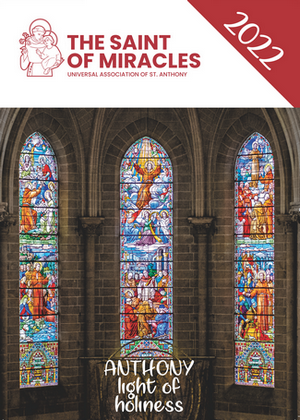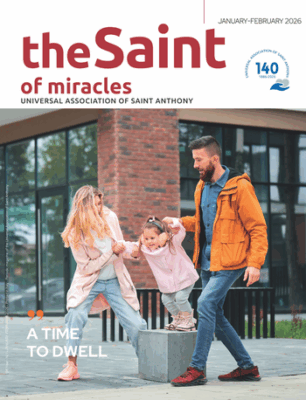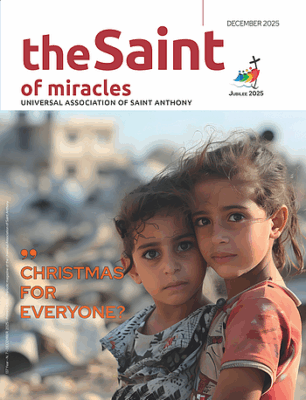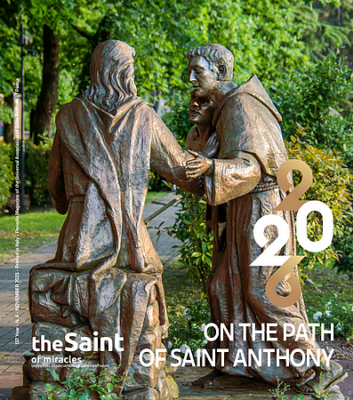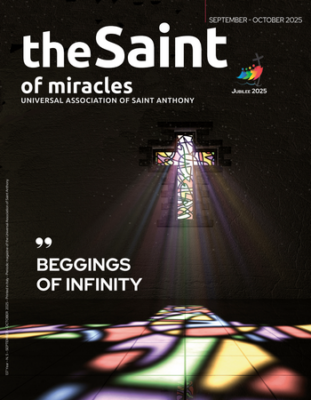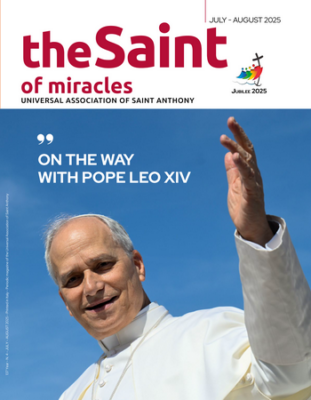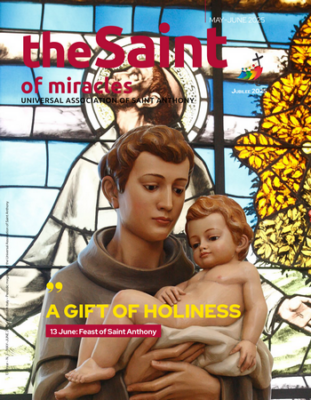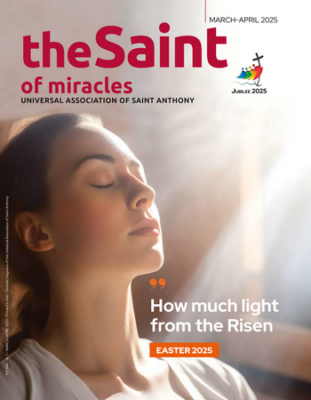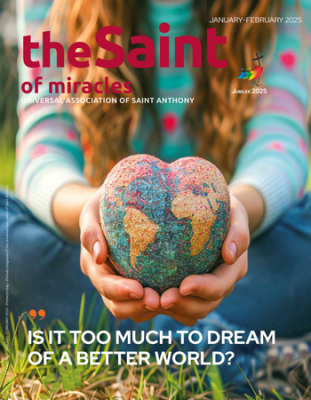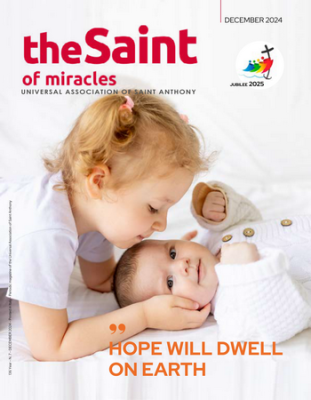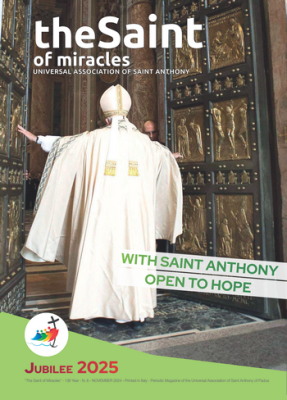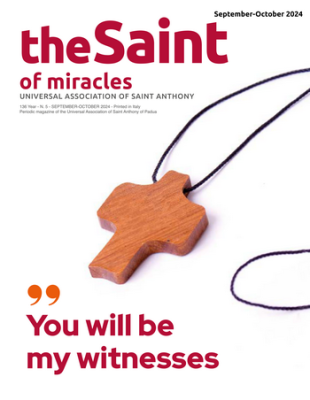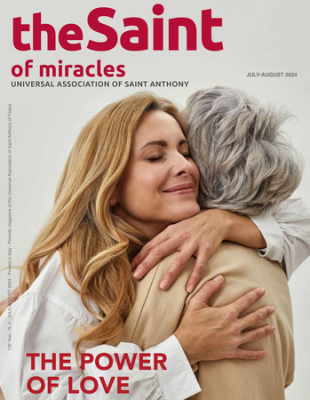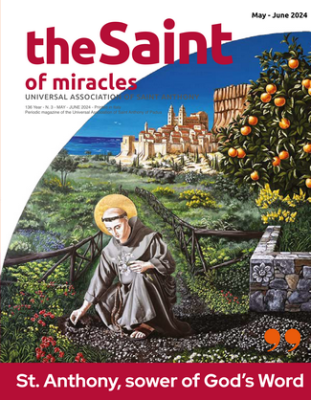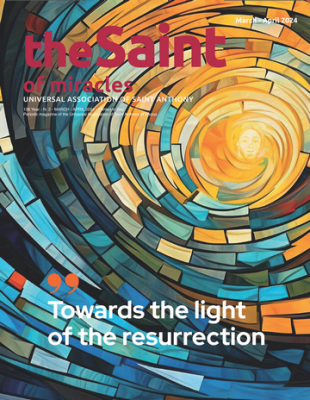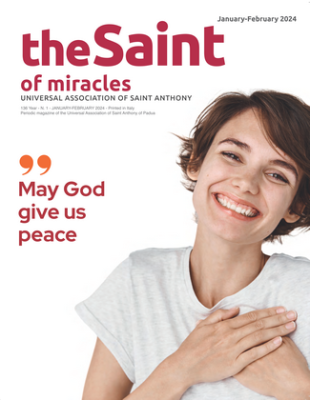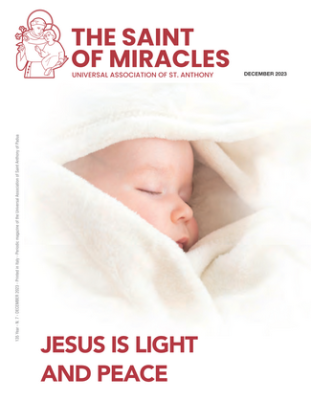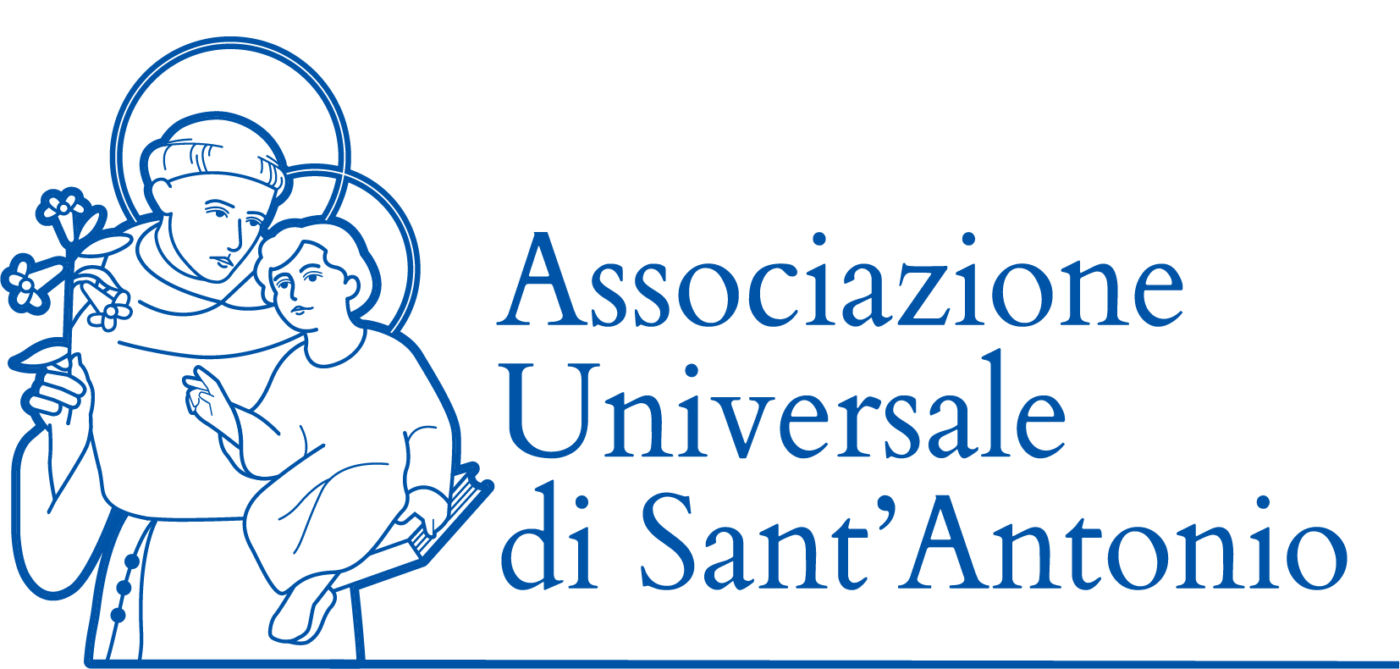Year 133 - November 2021Find out more
At the request of Pope Leo XIII St. Anthony “goes back” to France!
Editorial Staff
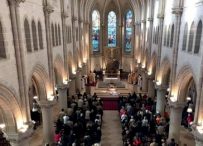
It may happen that in some people’s heart there are projects and dreams just waiting for the right moment to be made real. A gaze, a gesture, a word can be enough to provide a solution to something that seemed too difficult just a moment before. This is what happened to Don Locatelli, a priest in the Dioceses of Padua, when he was received in a private audience that deeply transformed him, by Pope Leo XIII in 1881.
But let’s proceed in order. Don Locatelli was born in Padua on the 22 of November 1839; he was baptised at home as he was “in danger of imminent death” with the name of Antonio because his mother entrusted him to St. Anthony for whom she had a special devotion. Despite his precarious health he completed his studies with success and he was ordained priest in 1863. Then he spent two years in Venice as a secretary to Cardinal Giuseppe Trevisanato.
He graduated in theology in 1866 and he was called to teach in the Seminary of Verona. Later he returned to his research in the archives which was why he travelled to Rome, Germany, Spain and France. In 1881 Don Locatelli had the occasion to accompany a group of Paduan worshippers who were received in a private audience by Pope Leo XIII. The Pope’s words are memorable: “You, the Padouans, have a great Saint but he is not only yours; look far: the devotion to St. Anthony is wide spread throughout the world, even in the farthest regions. He is everyone’s Saint”.
So, thinking about St. Anthony specific virtues Don Locatelli found the answer to his questions. In 1886 he opened the printers of the Antonian typography (Tipografia Antoniana) in via Cappelli and with the intention of creating a contact for the devotees of St. Anthony from all over the world he also founded the Universal Association of St. Anthony; a year later the Charity of the Bread for the Poor was started.
Then in 1888 the magazine “The Saint of miracles” began to be published. Encouraged by the words of Pope Leo XIII who wanted to spread the devotion in France to the Saint of Miracles who had been sent to France (Tolosa, Montpellier, Limoges and Arles) to preach the Gospel and to fight against heresies and against the moral decadence of some members of the Church, Don Locatelli crossed the Italian border to go to France. Then he met the bishop of Versailles and he encouraged him to build a church dedicated to St. Anthony.
In order to support this project he offered 10.000 francs that were used to construct a small chapel providing 130 seats in Chesnay-Rocquencourt. Some relics were transported there and Don Locatelli offered a beautiful statue (still there). Very quickly pilgrims and supporters flocked and the money necessary to built the huge church was collected in very short time. The first stone was laid in 1897, the church was blessed in 1900 and the construction of the bell tower was completed later. In his memories father Charles Boissis, parish priest of the community, wrote that this miraculous celerity was a sign of St. Anthony’s intervention.
The church of Saint Antoine de Padoue du Chesnay-Rocquencourt was constructed by the architect Leyenderckner in neo-Gothic style. The sixty meter high bell tower dominates the Valley. The distinctive stained glass windows of the church were created by the Charles Lorin de Chartres workshops and tell the story of the church’s patron saint from the first bay to the choir. These magnificent stained glass windows (some of them are reproduced in the calendar) have two functions: they brighten the quite dark church with a balance of fresh warm colours and they filter the light through the images of St. Antony’s life: so he becomes the light that brightens our path.
Dear readers and dear members of the Association, with this image we want to wish you a happy 2022. We are sure that in the dark moments of uncertainty that we are living in, and not only those of the pandemic, St. Anthony will continue to brighten our path and to watch over us all.


 Italiano
Italiano Français
Français